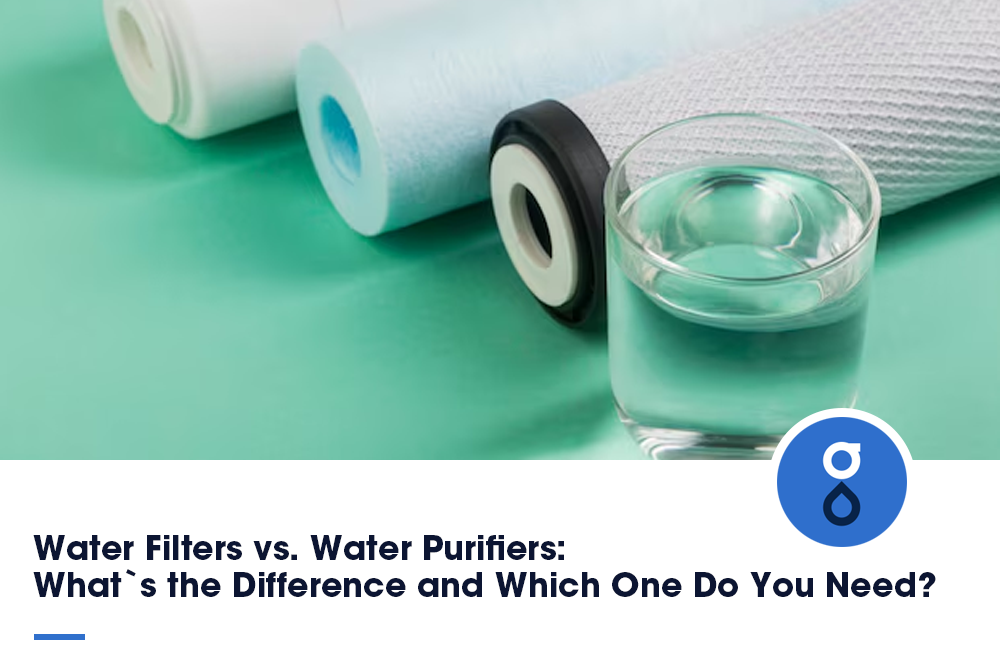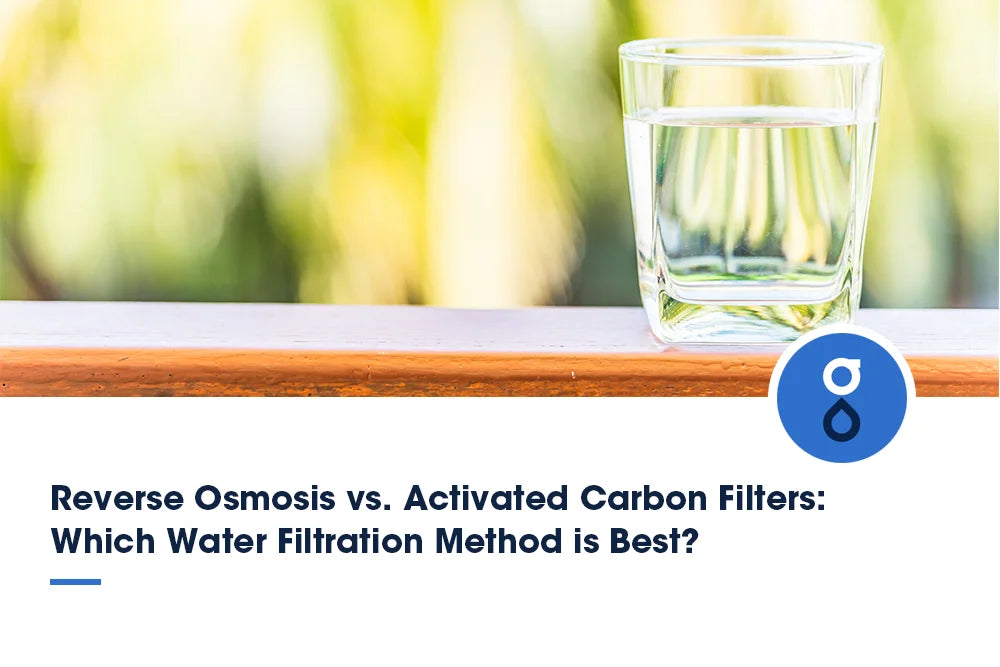Table of Contents:
What are pharmaceuticals and hormones in drinking water?
The impact of pharmaceuticals and hormones on health
The role of water filtration in reducing pharmaceuticals and hormones
Choosing the right water filtration system
Real-life impact of using water filtration systems
Conclusion
When we think about drinking water, we usually picture it as clean, clear, and safe. But what if hidden dangers were lurking in your glass? Recent studies have revealed that our drinking water may contain traces of pharmaceuticals and hormones, substances that can pose significant risks to our health over time.
These contaminants often go unnoticed and can end up in our water supplies through various pathways. In this blog, we'll explore how advanced water filtration systems can effectively remove these harmful substances, ensuring your water is as safe as it should be.
What are pharmaceuticals and hormones in drinking water?

Pharmaceuticals in drinking water refer to drugs like antibiotics, painkillers, and antidepressants that enter our water systems due to improper disposal or human waste. Similarly, hormones, such as those from birth control pills or hormone replacement therapies, can also end up in our water supply. These substances enter the water through several avenues, including agricultural runoff, industrial processes, and even from our homes when we flush unused medications down the toilet.
The impact of pharmaceuticals and hormones on health
The presence of pharmaceuticals and hormones in drinking water, even in trace amounts, can have alarming effects on health. Continuous exposure, especially to vulnerable populations like pregnant women and children, can disrupt hormonal balance and contribute to antibiotic resistance. Moreover, these contaminants can also impact the environment, particularly aquatic ecosystems, where they can affect the growth and reproduction of fish and other wildlife.
The role of water filtration in reducing pharmaceuticals and hormones
Water filtration systems play a crucial role in reducing the levels of pharmaceuticals and hormones in your drinking water. They're designed to trap and eliminate these compounds, thereby reducing their concentrations in water. Activated carbon filters, for instance, are highly effective at adsorbing pharmaceuticals and hormones. Reverse osmosis systems, on the other hand, use a semi-permeable membrane to remove these contaminants. They not only reduce these substances but also remove heavy metals, pesticides, and bacteria.
Choosing the right water filtration system
Selecting an ideal water filtration system can be daunting, given the numerous options available in the market. You're not alone in this; it's a common challenge. The key is to consider the specific contaminants you're concerned about and choose a system that effectively targets them.
Activated carbon filters are a popular choice. They're excellent at removing organic compounds, including pharmaceuticals and hormones. They work by attracting and trapping these contaminants in the carbon's pores.
Consider reverse osmosis systems. They use pressure to push water through a membrane, filtering out contaminants. While they're more expensive than activated carbon filters, they're highly effective.
Lastly, ultraviolet purification systems are worth considering. They use UV light to kill bacteria and viruses. However, they don't remove non-living contaminants, so they're often used in combination with other filtration methods.
Real-life impact of using water filtration systems
The real-life impact of using these filtration technologies is significant. It's about more than cleaner, safer water. It's about community awareness, environmental effects, and a healthier future.
- Community awareness: When you use water filtration systems, you're not just improving your water. You're sending a clear message about the importance of clean water, sparking dialogue, and increasing community awareness.
- Environmental effects: Filtration systems reduce the amount of harmful substances in our environment. It's a simple step with a big impact.
- Healthier future: By reducing the presence of pharmaceuticals and hormones in drinking water, you're directly contributing to a healthier future for yourself, your family, and your community.
- Sustainable living: Using filtration technologies is a practical way to embrace sustainable living and reduce your environmental footprint.
- Economic benefits: In the long run, investing in a water filtration system can save you money on bottled water and potential health costs.
Conclusion
The presence of pharmaceuticals and hormones in drinking water is a growing concern that requires our attention. We can protect our health and the environment by understanding the risks and implementing effective water filtration solutions. Whether you're looking to safeguard your family or contribute to broader public health efforts, investing in a high-quality water filtration system is a step in the right direction.
Clean, safe water is not just a necessity—it's a right everyone should have access to. Take action today with Glacier Fresh by assessing your water quality and choosing the right filtration system to ensure your drinking water is free from harmful contaminants.

















